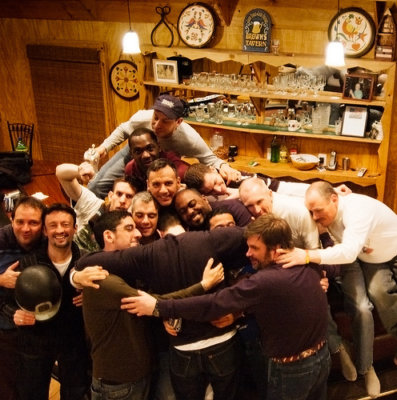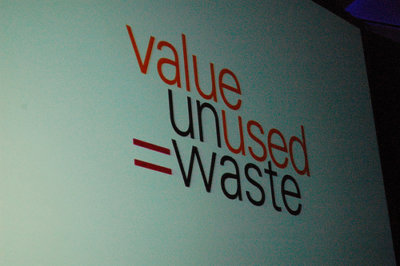The Power of Personal Values – Are You Missing Out?

By: David Goehring
by Andrea M. Darcy
Personal values are what you see as important in life, other people, and yourself. They can include big moral standpoints, such as values of honesty, integrity, and loyalty, but also day-to-day ways of living, like a value of efficiency or timeliness.
Why are values such a big deal?
Understanding your values and aligning your choices with them can mean the difference between feeling fulfilled and alive, or feeing exhausted and without purpose.
For example, imagine that deep down your values are charity and adventure and your job is that of surgeon. If you decide to set up a practise as a top plastic surgeon who never has time to travel, no matter how successful and well-known you become, you might feel a gnawing sense that you are not living the life you should be. On the other hand, should you take a job working for Doctors Without Borders, you are going to wake up every day feeling good.
Of course if you were a surgeon whose values were stability and renown, the reverse would be true. What matters is to identify the values that resonate for you personally, not what you think you ‘should’ have as values.
Why values are not as simple as they sound
While it might seem that knowing your values would be a straightforward thing, for many of us it if anything but.
To truly know our own values we need to take the time to truly know ourselves. If you don’t do this, there’s a good chance that you are making choices based on the values of those around you, such as your peers and family.
If you think you know your values but often feel exhausted by the decisions you make, or despite having a seemingly ‘good’ life often feel empty inside, it’s likely that you are living your life from others’ values and not your own.
The good news is that if you do take time to get to know yourself and your own values, then start to make choices that reflect them, you can start to see real changes such as:
-

By: Kevin Krejci
faster decision making and clearer thinking
- more energy
- choosing friends and partners who suit you
- more inner peace
- clearer life purpose
- stronger career choices
- higher self-esteem
Why we end up using the wrong values
Why do we spend our lives unaware of our own value system? And what makes one person more prone to take on the values of those around them without realising it?
Often it stems from a childhood where we not encouraged to fully be ourselves in all our multifaceted glory. Perhaps your childhood involved one of the following patterns:
- you were only given love and affection if you were ‘good’ and ‘agreeable’
- you were not allowed to develop a healthy attachment to your mother or primary caregiver
- you were unfairly punished for normal childhood behaviour so learned to be invisible
- you had a very successful and dominant parent you were raised to want to be just like
- you grew up in a big family where fitting in made things easier
- you were sent to boarding school where you relied on moulding yourself to acceptable norms
- you were emotionally, physically, or sexually abused and taught to say nothing
All of the above are the sorts of experiences that lead to being an adult who is perhaps codependent, lacks boundaries, or relies on the opinions and attentions of others at the detriment of your own. In other words, the sort of person who strives to match the values of others without even realising it.
How to know if you are using the wrong values for you
If you aren’t sure if your values are your own, ask yourself these questions:
- Looking at the last three big decisions I made, did they energise me, or make me feel tired or overwhelmed?
- When I hear myself speak of what I think, do I feel excited, or like I am somehow listening to someone else from a distance?
- If I write down what I think my 5 top values are on piece of paper and read them aloud, does it feel good, or do I feel a bit uncomfortable?
- If I was told I had a week left to live, and wrote out a complete schedule for my last week, would it match the 5 values I just wrote?
- Can I look at these 5 values and quickly see who I learned them from? And do I actually admire those people whose values I am living?
How to find your real personal values

By: Keoni Cabral
So you have realised your values aren’t clear to you, or that they are simply your family’s values that deep down are not for you. So you do you then find the ones that are?
1. Think of the time in your life you were most happy. What about that time in your life made you so content? Can you identify a value in it?
2. Write out the things you have done in life you are most proud of, independent of what others thought. What values do these points of pride show?
3. If you suddenly won the lottery, what would you do next in my life? Write out in exact detail what your ideal day as a person would no money worries would look like. What values does this plan reflect?
4. Write about three characters, dead, alive, or imaginary, that you secretly admire. What about them do you most admire? What values does that show you have?
What things do others do that drive you truly crazy? What are the opposites of their actions – for example, if people being late drives you nuts, promptness, if bragging makes you want to yell, humbleness. These opposites are likely your real values.
I feel confused about my personal values still. What can help?
If working through the above questions still leaves you uncertain, it might be helpful to speak to a professional coach or counsellor who is trained at helping you hone in on what truly matters to you. Sometimes the very act of speaking to someone who is impartial, non judgemental, and outside our sphere can itself cause you to admit things you’d not recognised previously.
A professional therapist will also be able to guide you through any inner fears or resistance to seeing your own values. They can also help you navigate any difficult childhood memories or big emotions looking at your real values stirs up.
And once you do find the values that truly matter to you, your coach or therapist can then guide you use them to make better choices for your future.
 Andrea M. Darcy learned about the power of personal values years ago when doing coaching training and it was a game changer in her life. A writer and personal development teacher, if you like learning about yourself, find her on Instagram @am_darcy
Andrea M. Darcy learned about the power of personal values years ago when doing coaching training and it was a game changer in her life. A writer and personal development teacher, if you like learning about yourself, find her on Instagram @am_darcy





Guilt is the main cause of depression in my long suffering life. I think for most people it is the same. I can forgive somethings I did bad in life and move on but other things just won’t let me forgive myself and move on. So the cycle keeps going…..
It’s definitely a huge cause of low moods for many of us, because it causes low self-esteem. It’s often not even based on reality at all, but on our warped perspective where we do things wrong or upset others. Cognitive behavioural therapy can be a godsend in this case, because it really helps you understand how untrue your thoughts can be. You might find our piece on cognitive distortions interesting, too, it shows just how many games our mind can get up to…https://www.harleytherapy.co.uk/counselling/cognitive-distortions.htm
Being true to your self is so important.. finding out who I actually am has taken me 30 years . Having had 2 failed marriages & both Domestic Abuse.. has been horrendous.. however my 3 adult children are my world . Without them I’d have nothing. Knowing I’ve been the best parent to them, even while suffering from Post Natal Depression..
I’m 4 years separated and finally divorced.
These 4 years have taught me that peace is what was missing, boundaries were missing ( non existent ) .. now after having counselling and EMDR plus a great support group .. I’m the best I can be , I’m free, authentic, honest and incredibly grateful. Life is good.